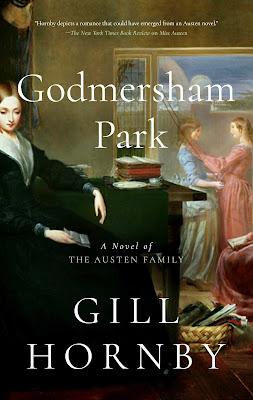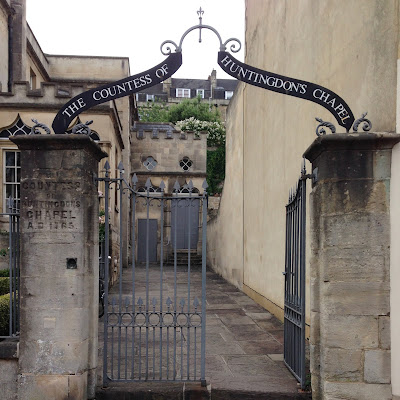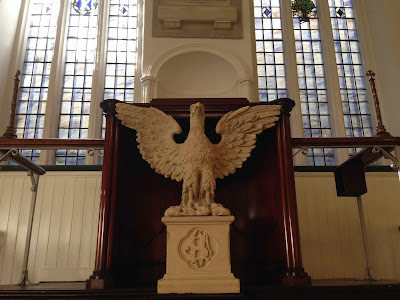Hello, my friends! Today I have a lovely excerpt from Gill Hornby's new book, Godmersham Park! This story fascinates me! It's inspired by the true story of Anne Sharp. She was a governess at Godmersham Park. She and Jane Austen became good friends.
Godmersham Park
A Novel of The Austen Family
by Gill Hornby
BOOK DESCRIPTION
A richly imagined novel inspired by the true story of Anne Sharp, a governess who became very close with Jane Austen and her family by the #1 International bestselling-author of Miss Austen.
On January 21, 1804, Anne Sharpe arrives at Godmersham Park in Kent to take up the position of governess. At thirty-one years old, she has no previous experience of either teaching or fine country houses. Her mother has died, and she has nowhere else to go. Anne is left with no choice. For her new charge—twelve-year-old Fanny Austen—Anne's arrival is all novelty and excitement.
The governess role is a uniquely awkward one. Anne is neither one of the servants, nor one of the family, and to balance a position between the "upstairs" and "downstairs" members of the household is a diplomatic chess game. One wrong move may result in instant dismissal. Anne knows that she must never let down her guard.
When Mr. Edward Austen's family comes to stay, Anne forms an immediate attachment to Jane. They write plays together and enjoy long discussions. However, in the process, Anne reveals herself as not merely pretty, charming, and competent; she is clever too. Even her sleepy, complacent, mistress can hardly fail to notice.
Meanwhile Jane's brother, Henry, begins to take an unusually strong interest in the lovely young governess. And from now on, Anne's days at Godmersham Park are numbered.
Excerpt
chapter xi
‘Miss Sharp!’ Fanny burst into the Godmersham attic. ‘Look!’ She brandished a letter. ‘All that time, I was expecting to hear by the morning post, and it came by the evening.’
They both studied the paper, weighed up its width and its quality, ran their eyes over it to judge the length of what was written upon it. ‘In my mind’s eye, I had seen myself receiving it at breakfast and reading it there, just as Mama does. I mean, like a proper young lady.’ She worried at her lip. ‘But now is just as good, is it not?’
‘I should say it is a fine time for the reading of letters,’ Anne reassured her. ‘A lovely end to the day. And remember, my dear, if this is to be a full correspondence, you can look forward to more in the future . . .’
Fanny breathed out. ‘You are so right. I am beginning to think, Miss Sharp, that you are in the habit of being right on all matters. So, what happens now?’
Anne was becoming a little concerned by her pupil’s over-keen sense of deference. If they went on like this, Fanny would soon be incapable of putting one foot in front of the other without appealing for guidance. ‘I suggest that you read it?’
‘Oh,’ Fanny gave a little laugh. ‘Of course! Shall we do so together?’
‘No, my dear,’ replied Anne, though she was not un-intrigued. ‘This is to you.’
Fortunately, Fanny – who was one of the world’s greatest sharers – chose to read it out loud:
My dear Fanny,
Your letter occasioned such joy among all in your Bath family – but in me, in particular. I cannot imagine what I have done to deserve such an honour – and nor can your superior aunt, my dear sister. When the post came for me, there was a danger that she might drop dead from sheer jealousy, but I quickly revived her with my shrewd observation – Cassandra is harder to spell and consumes too much ink. God bless my short, simple name!
We all marvelled at hearing your Godmersham news, and you have the advantage of me. How can my dull existence compare with the revelation that you have a new governess? It is clear she is a woman of substance for your pen was clear and the contents quite perfect. If you are so kind as to reply to me now, please do us the favour of addressing the following concerns. We all long to know what books you are reading – in particular, which poets? Your grandfather desires that you acquire a sound basis in Shakespeare and, as always – he cannot be helped – issues a plea on behalf of the Classics. Is your Miss S. – among her other perfections – strong in the Classics? If so, then she is truly a paragon.
As you know, your Grandmama has been most unwell and the worry and fear has kept us at home more than is usual. But I am here to report she is now well on the mend, and her spirits returned to their usual height. It cannot be long before we return to the social round. Though I am relieved that the illness is over, I cannot rejoice at being turned out of doors. The streets of Bath are made so dirty by this dreadful wet weather – it keeps one in a perpetual state of inelegance.
We all look forward to hearing from you again, and pray you send our love to all of the Godmersham family.Your fond Aunt,Jane Austen.
Each expressed their delight in tones of great rapture and agreed it to be one of the greatest – possibly the best – letter yet to be written. Fanny read it twice more, so as to be thoroughly sure, before disappearing down to the library to share it anew. Anne, at last, was able to pick up her own pen, and then Sally came in.
The sullen maid of Anne’s first evening had warmed into a garrulous creature and now, while Anne sat alone working, Sally would work alongside her. Her clear philosophy was that, while the hands toiled at tidying and cleaning, the tongue should not idle.
‘What is it you’re up to there, miss?’ She was sifting through Fanny’s drawers and refolding the inexpertly folded. ‘Another letter, is it? You do write a lot of letters and no mistake.’ She came and looked over Anne’s shoulder. Anne covered her page. ‘Don’t worry about that, miss. All scribbles to me.’
‘You cannot read or write, Sally?’ Anne felt that glorious, prickling anticipation of a new project. ‘Would you like me to teach you? When is your afternoon off ? I am sure I could spare a few hours every week.’ She was quite magnificent in her own generosity.
‘Ta, miss, but I’m right as I am.’ Sally went back to her work. ‘My afternoons off are my afternoons off, thanking you very much. I go out on the gad, then, with Becky.’ Anne picked up her pen again, crushed. Suddenly intrigued, she put it back down. ‘You must be most expert gadders to find any gadding to be had in Godmersham, surely?’ The village did not even have a shop, let alone a High Street. Anne had found no amusements beyond solitary walks. How does one even begin to gad in a field?
‘You’d be surprised, miss. There’s some new lads down
at the tithe barn.’ Sally gave a little shriek. ‘Ooh, but we do like a laugh with them.’
‘And Mrs Salkeld does not object?’ Anne herself could never be so brave as to incur the wrath of the housekeeper.
Sally shrugged her thin shoulders. ‘If she does, she daren’t say so. We’re still young, miss. Got to enjoy yourself, haven’t you? It’s only a job, after all. If they stopped me, I’d tell them to stick it.’
Anne paused to reflect on their relative positions. She was certainly paid more, but Sally – with her uniform and its upkeep provided – had fewer expenses. Sally enjoyed hours off in the day and the companionship of life in the servants’ hall; Anne belonged neither to staff nor family, was almost always on duty and, when not, entirely alone. It appeared that a maid could make an exhibition of herself abroad and it was tolerated, yet if a governess were to attract even the eye of a gentleman, she would face instant dismissal. The comparison provided food for thought on the question of privilege and the cost of its benefits.
Purchase Links:
Amazon (paid link) • Barnes & Noble • Book Depository • Bookshop
Add to Goodreads
FTC Disclaimer: Link to Amazon. I am an Amazon Associate. I will receive a small commission if you purchase a book through the link provided. Thanks!
About the Author
Advance Praise
"This is a deeply imagined and deeply moving novel. Reading it made me happy and weepy in equally copious amounts…I read it straight through without looking up.”— Karen Joy Fowler, author of The Jane Austen Bookclub
Hornby’s skillful mix of fact and fiction captures the complexities of the Austens and their era, and her crisp, nimble prose sparkles throughout. Best of all, Hornby genuinely channels the sentiment of 19th-century English literature. Janeites aren’t the only readers who will relish this smart, tender tale."— Publishers Weekly, starred review
“…a well-written and delightfully observant novel…an excellent read.”— The Historical Novel Society
So, friends, any thoughts? Sounds like the life of a governess could be very lonely. But I think Anne Sharp does ok for herself. I'm looking forward to reading this one. How about you?

.jpg)







